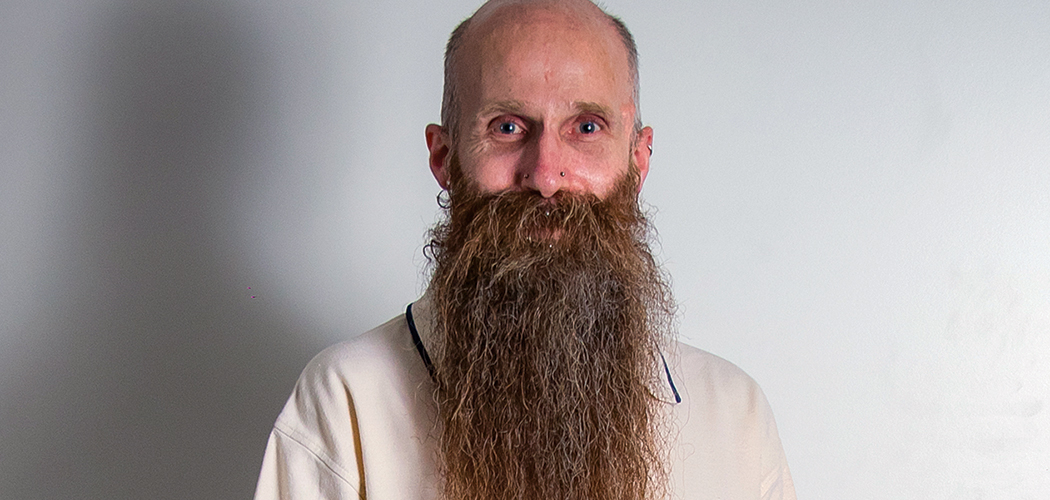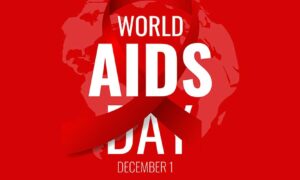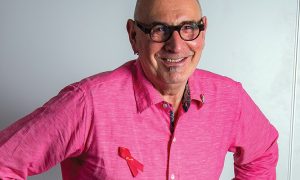Ian Fincher is 44 and works in theatreland in the West End – and has a number of transdermal implants and piercings.
“I was diagnosed on 9 November 1998. I remember I had to nip off work from Guildford to London. I’d had my test a week before because I thought I had an STI – which I did – and whilst I was at Mortimer Market they said do you want an HIV test? I ummed and aahed. I had mixed feelings, was it better to know? I’d never done an HIV test before.
When I was told, you have HIV, how do you feel? I’m like, well, I know life carries on. I thought I was absolutely fine. It was two weeks later when I had a crunch point of being in tears for two days. Now what do I do with myself? Everybody else that has HIV sorts themselves out, goes through this stage, tries to pick up the pieces, so I just carried on really.
They said I was a slow progressor. I’d seroconverted in March. They said generally you’re absolutely fine, we don’t need to see you for another six months. My T cell count was quite high around the 600 or 700 mark. I think it went to 1000 at one point.

It was in 2003 when I got diagnosed with Hep C that things started to crumble and go a bit AWOL. I did medication for Hep C from 2003 to 2004 which was 48 weeks then. It was hard work. I got to the end of it and then passed the 6 months window. And then at the 8 months window I came down with it again. We waited till 2007 to do the Hep C meds again. It was a difficult 12 months and by then my T cells had dropped down to the 200 mark and I started HIV treatment in October 2008.
I did rebound pretty well on it. I did have more energy. I’m still on the same drugs as I started – Truvada and Nevirapine – because I did the Nevirapine trial to go on extended release. I’m now having odd blips when my viral load becomes detectable, a bit more frequently than expected, I’m seeing how long it goes.
It has affected relationships; if you say you’re HIV positive they kind of run away, or you get that ‘I’m not sleeping with you’, or the usual long list of excuses. I think the stigma is still quite bad out there but I think actually at times you just have to grin and bear a bit of it, and just don’t let it get to you.
All my online profiles say I’m HIV positive. I was really open because of the Hep C. The stigma was really bad, and still is at times, for Hep C. I think at times that’s probably worse than the HIV. It makes it easier for me. I haven’t got to keep having that conversation.
My message for under 25 year olds? Be sensible. Look after yourself. You might think it seems easy if you get positive and you just take medication, but it’s the long-term health impacts including mental health, which is quite significant. It does create a lot of stress and that stress you have to live with for yourself and to deal with it.”
Photos by Joel Ryder














